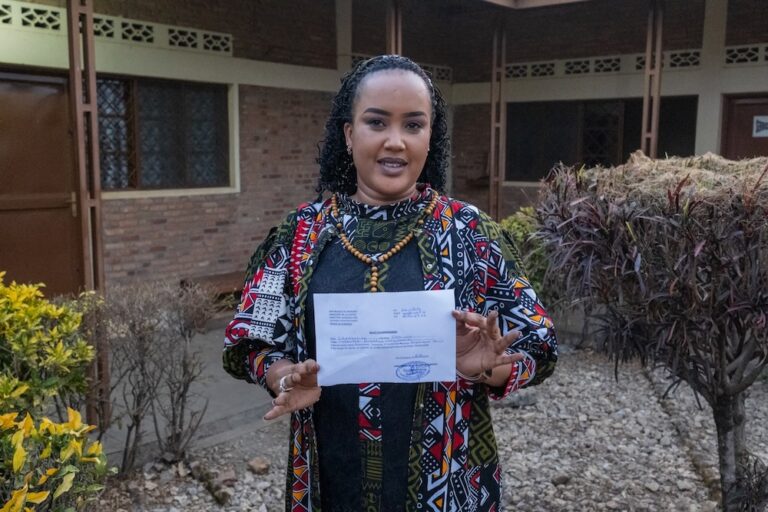(RSF/IFEX) – Reporters Without Borders has condemned a Kigali judge’s decision on 19 January 2007 to place Agnès Uwimana Nkusi, the editor of the privately-owned fortnightly “Umurabyo”, in custody for 30 days while she awaits trial on charges of “promoting divisions,” sectarianism and libel. “Given that the charges are so political and vague, the court […]
(RSF/IFEX) – Reporters Without Borders has condemned a Kigali judge’s decision on 19 January 2007 to place Agnès Uwimana Nkusi, the editor of the privately-owned fortnightly “Umurabyo”, in custody for 30 days while she awaits trial on charges of “promoting divisions,” sectarianism and libel.
“Given that the charges are so political and vague, the court issued an unfair decision and rode roughshod over the principle of a presumption of innocence,” Reporters Without Borders said. “Even if Nkusi acknowledged that her article may have had a negative impact and offered to publish a correction, the judge has sided with the authorities and supported their evident desire to eliminate one of Rwanda’s very few independent newspapers. If this case is to be handled fairly, Nkusi must be freed.”
The 30-day detention order was issued by the judge of the Nyarugenge local court in Kigali at the state prosecutor’s request on the grounds that Nkusi represented a threat to the country’s security. The court thereby gave prosecutors more time to prepare the case against her, which was prompted by an article in issue No. 10 of “Umurabyo” and a letter published in issue No. 11.
Nkusi recognised during the 19 January hearing that the column she wrote headlined “You have problems if you kill a Tutsi, but you go free if you kill a Hutu” could have had “a bad impact” and she undertook to write another column correcting the position she took. As regards the letter addressed to Rwanda’s independent journalists that was published in issue No. 11, she explained that it was sent to several news media but only hers chose to publish it.


